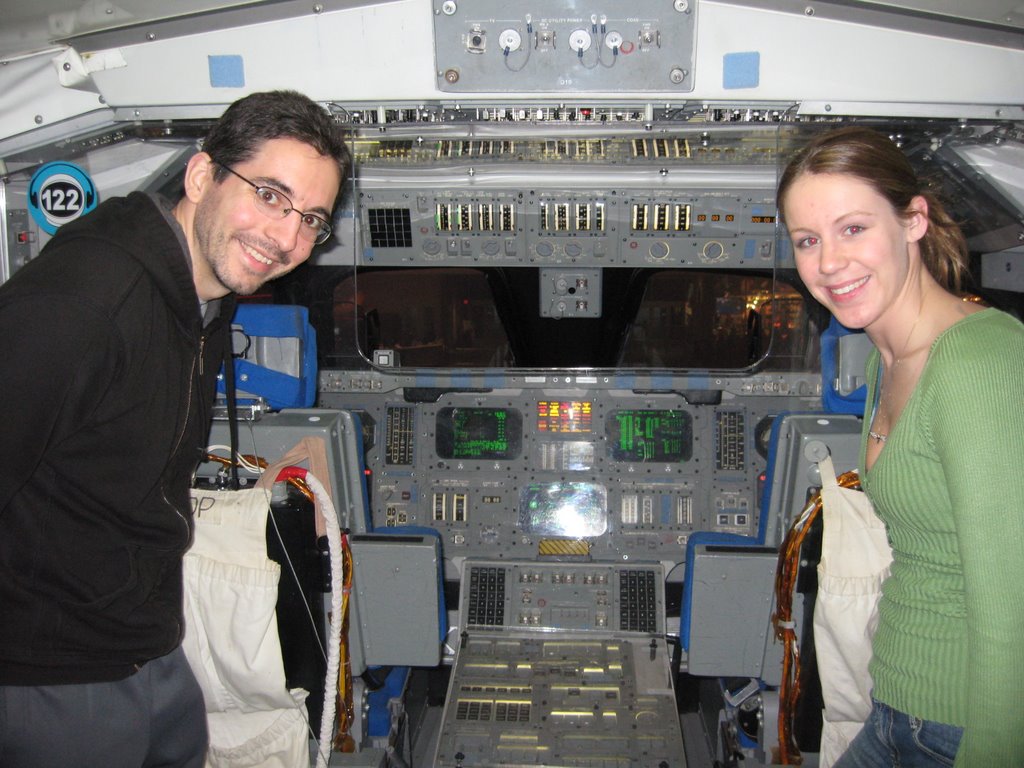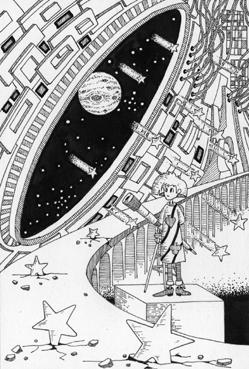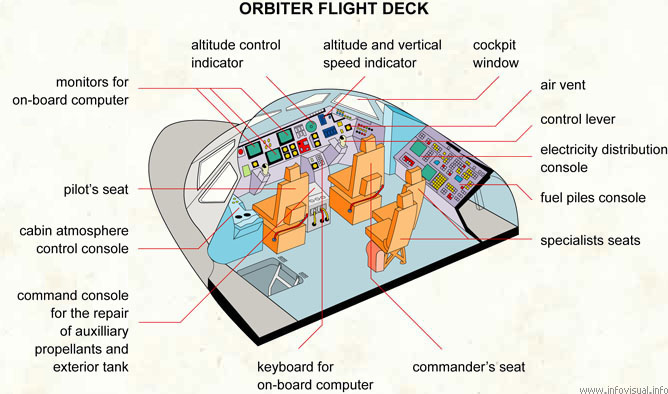Operationalization
Counterblast



At the top of each file, when it is not the case it exists only in English, there will be an access pointer for each idiom as follows:
|
This whole job was created by a Portuguese speaking person in Brazil and originally was devised in this idiom.Since the idea is to follow English speaking sources, specially those from the United States, in many instances there will be only English versions of subjects |
The above images are a metaphor for our ship Counterblast and the operation of it is very simple, "friendly", you pretty much just go forward or backward. Forward at the "buttons" of the text which can be images or even text, usually built with a <sign. To go back, use the browser of your editor, who is an arrow at left on the top of your computer screen. Anything you back to step one and start again from there, since it is possible to get confused along the way. It looks a bit like a computer game.
You came here from the text of Ulysses and before we get into the details of how we will explore the text, it is interesting you become aware of a biography of James Joyce and nothing better than his centenary exhibition in Buffalo and his biography published in Enciclopaedia Britannica edition, 1983. These two cases are what was mentioned above, only in English.
The objectives of this project originate the maps that follow and to understand the journey, let us briefly list what we're trying to do:
Disrupt paradigms
Paradigm comes from linguistic, but extends to virtually everything that is cultural. If you have some time, read the Wikipedia article above, but, in our case it is:
Paradigms are psychological
patterns, models or maps that we use to navigate in life.
Are rules, canons, standards, referees, schools, finally, rules that establishes
the "correct" way of thinking about something.
We propose the following paradigms against other established: ones:
- McLuhan is a man of letters- The textual translation of Ulysses is impossble
- It is possible to understand Ulysses in any language and examples will be given
- The message contained in Ulysses examinded under MacLuhan is something else
- Literature is moving towards a different way from the one contained in printed books
This will be done by examining the paradigms conventionally accepted for a comparison and verification of the validity of the proposal.
This work es an example of the new form of communication made possible by the Internet and the computer
You can not edit this work in a printed book form. But it can be "read" like a book. This book however, is kind of "alive" with images, movies, animations and interactions, being intentionally "hot" in the way described by McLuhan
Before going back to the text of James Joyce Ulysses, let's take a look at a summary of how it will be executed.
Project logical Design
Phase I - nepistemological under the criteria of McLuhan taking literature as a function
|
At
this stage the aim of this project is to seek the concepts proposed by
McLuhan having
literature as a
function,
seeking explanations, understanding, logic, constructive way, or how,
Joyce took his revolutionary way and why it affects us as it does. |
Go directly to the interpretation under McLuhan
Phase II - conventional epistemological
Epistemology here is relative to what the Academy agreed about James Joyce.
|
At this stage, the aim of this project is to solve the problem of access capacity to James Joyce looking for explanations, notes, glossaries, studies, etc., conventionally used by the Academy, written in English. Translating these explanations to the chosen languages and through a "pointer" make them available immediately, on the same screen as the original English text written by James Joyce is shown. By doing this, the person will be able, in the agreed opinion of the Academy, to discover and understand what and why it was put there by James Joyce and where the complication to translate and understand it resides. |
The example from Episode 1 - Telemachus, for a conventional interpretation, is proposed at three levels as follows:
College admission level and when you leave High School in the USA
The feature is to spend as little time as possible and transfer the maximum amount of information with maximum fidelity possible. Supposedly for students or readers that fit in the case of minimum effort and maximum gain.
For people who need it, as this student of Professor Lamberti, or for people who want a more complete understanding, perhaps in preparation for reading the book. There is no intention to replace reading the book on academic tasks. Typically subject to appraisal by whom it may concern, The new bloomsday book by Harry Blamires, solves this admirably. Eventually I intend to ask permission from Routledge to translate this book in the chosen languages that do not yet have the translation. I do not know if they exist and this has to be checked. I'll close with the translation of Blamires referring to episode 1, Telemachus. Indeed, it is difficult to distinguish the level for college admission from this ... Maybe the difference is the reading of the book accompanied by a compatible analysis under baccalaureate level, arising from lectures and discussions of higher level classes.
For those who want a deeper understanding about James Joyce's Ulysses. Normally, subject to the judgment from whom it may concern, the Ulysses annotated by Don Gifford is the reference. At this level, people involved have to know English (in Brazil, it is a legal requirement) and no translation will be done, except when it is not originally written in English. The indication where to find or where it came from, some explanation within the text as how James Joyce wrote Ulysses, etc., will be given in English. This book by Don Gifford will be combined with the lessons of Prof. James A.W.Heffernan, Dartmouth College, from The Great Courses, The Teaching of the Company. Eventually, we'll ask them to put subtitles in these classes, at least in English. Again I repeat, this is not gospel, it is an example of a possibility that should be judged by whom it may concern, and embed or not in this project, discretion prevailing.
It was added when the project was already structured, James Joyce's Ulysses: A Study by Stuart Gilbert. His biography can be seen in Stuart Gilbert.
Before diving into the chapter 1 example , go back to the text of James Joyce and become aware of the copyright issue, the various existing issues (pressing page [1]). There is an interesting information that has been suppressed after 1961 (by pressing S) and why this edition was chosen for this job.
Project Operational Design
| Part | Homer's Ulysses adopted episode | Page number according to the vintage Edition 1961 (brackets [n]) |
| I -Telemachiade | Episode 1 - Telemachus (example) | 01 - 23 - keeper Roque Ehrhardt de Campos |
| Episode 2 - Nestor | ||
| Episode 3 - Proteus | 37 - 51 - keeper | |
| II - Odisseia | Episode 4 - Calypso | 54 - 70 - keeper |
| Episode 5 - Comedores de Lotus | 71 - 86 - keeper | |
| Episode 6 - Hades | 87 - 115- keeper | |
| Episode 7- Aeolus | 116 - 150 - keeper | |
| Episode 8 Laestrygonians | 151 - 183 - keeper | |
| Episode 9 - Cila e Caribdis | 184 - 218 - keeper | |
| Episode 10 - Rochas Errantes | 219 - 255 - keeper | |
| Episode 11 - Sereias | 256 - 291 - keeper | |
| Episode 12 - Ciclopes | 292 - 345 - keeper | |
| Episode 13 - Nausicaa | 346 - 382 - keeper | |
| Episode 14 - Bois do Sol | 383 - 428 - keeper | |
| Episode 15 - Circe | 429 - 609 - keeper | |
| III - Nostros | Episode 16 - Eumaeus | 612 - 665 - keeper |
| Episode 17 - Itaca | 666 - 737- keeper | |
| Episode 18 - Penelope | 738 - 782- keeper |
Go to the interpretation
of Episode
1 - Telemachus (example)